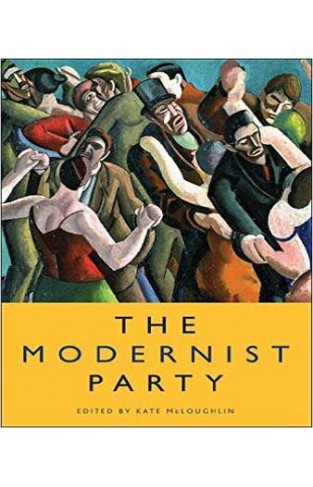The Modernist Party
The Modernist Party
By:
-
Rs 5,996.25
- Rs 7,995.00
- Ex Tax :Rs 5,996.25
- Price in loyalty points :1895
You saved Rs 1,998.75.
Due to constant currency fluctuation, prices are subject to change with or without notice.
Leading international scholars explore the party's significance to Modernism. In 12 chapters internationally distinguished scholars explore the party both as a literary device and as a forum for developing modernist creative values, opening up new perspectives on materiality, the everyday and concepts of space, place and time. There are chapters on Conrad and domestic parties, T S Eliot's Prufrock, the party vector in Joyce's The Dead and Finnegans Wake, Katherine Mansfield's party stories, Virginia Woolf's idea of a party, the textual parties of Proust, Ford Madox Ford and Aldous Huxley and the real life parties of Sylvia Beach, Adrienne Monnier, Natalie Barney and Gertrude Stein, the black 'after party' of the Harlem Renaissance and the parties in extremis in D H Lawrence's Women in Love. Like guests at a party, the chapters talk to and argue with each other. They contribute different approaches: formal, historical, thematic, biographical and theoretical. They address gender and sexuality, race, genre, class, sociality and privacy. And they establish critical viewpoints. The party is shown to be the site both of introspection and self display. It provokes competition, collaboration and violence. It is an occasion of nihilism as well as a model for creative production. It develops the concept of space, currently of central concern to Modernist scholars. It explores the tensions between Modernism as aesthetics of intensity and Modernism as a movement of the everyday. It also adds a new and vital area of research to investigations of Modernism as the product of intellectual and social networks.



